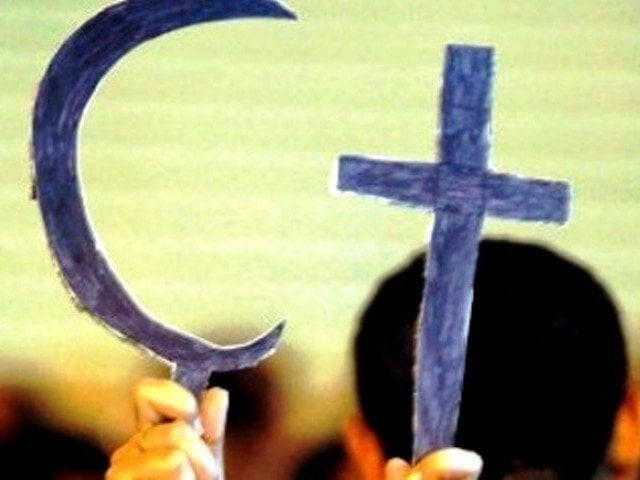State and citizen: ‘Remove discriminatory laws that hurt minorities’
Lawyer says feelings of non-Muslims should also be considered in judging a movie or a piece of writing

Lawyer says feelings of non-Muslims should also be considered in judging a movie or a piece of writing. PHOTO: AFP
These views were expressed by Advocate Aalia Malik of AGHS Legal Aid Cell at a consultation on Freedom of Religion and Belief on Tuesday.
The consultation was organised jointly by the Human Rights Commission of Pakistan and the AGHS Legal Aid Cell with the cooperation of the European Union.
Malik said the amendments made during General Zia’s tenure concerned issues that were so deeply rooted in the society that one could not freely speak about them without endangering their safety. She said the amendments had not just affected non-Muslim minorities. Muslim citizens had also suffered because of those amendments.
Malik said Articles 62 and 63 of the Constitution were about eligibility of a candidate for an electoral office. However, she said, General Zia’s government confined the scope of the two articles to Islamic precepts. This should be undone, she said.
Similarly, she said the law of evidence was discriminatory towards minority community members.
Minorities’ issues: ‘Construction will not be allowed in place of gurdwaras’
Malik said it was not enough to judge movies or pieces of writings on whether or not they were likely to hurt feelings of Muslim citizens. She said that in such matters similar care should be taken to ensure that feelings of followers of other religions living in the country were not hurt.
Malik also questioned the criteria for disbursement of Zakat, Ushr and Baitul Maal funds. She said these should not be disbursed among Muslims alone. “If non-Muslims deserve assistance, these funds should be used to help them out,” she said. She said minorities should be given a dual vote.
Highlighting social discrimination against minorities, Advocate Nadeem Anthony said that in some parts of the country minority were not allowed to share eating utensils or bathrooms with Muslims. He said some of the discriminatory attitudes were endorsed by laws. Such laws should be abolished immediately to pave the way for a plural society where people from various faiths could coexist in peace, he added.
Catherine Sapna, Christians True Spirit director, said forced conversions were a consequence of discriminatory laws. She said it was not considered a huge issue if a non-Muslim girl married a Muslim boy. However, a marriage between a Muslim girl and a non-Muslim boy could endanger the safety of the entire family of the boy, she added. Dr Salamat Gill said that discriminatory policies of successive governments had turned people from various faiths against one another. He recalled that he had suffered discrimination since childhood. At school, he said he was not allowed to use the mug kept for his class fellows to drink water. He said well-qualified Christians were denied jobs because of their faith. Even in the NGO sector, the attitude was not very different, he added. He said it seemed that programme coordinator was the highest position non-Muslims could aspire to in their careers in the sector. He said Muslims belonging to lower socio-economic classes faced similar discrimination.
Sarfaraz Karamat, a Christian representative from Gujranwala, complained that the district police had not allowed his church to take out a procession at an annual religious gathering. Mainstream churches were allowed to do so and provided with security, he added.
Published in The Express Tribune, June 29th, 2016.



















COMMENTS
Comments are moderated and generally will be posted if they are on-topic and not abusive.
For more information, please see our Comments FAQ